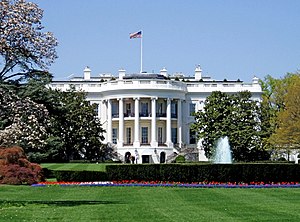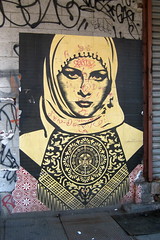Source:
Gulf News - Feb 11
By Salam Al Amir
Sharjah: A shocking trend is sweeping across educational institutions in the UAE. It’s called same-sex relationships and it’s worrying officials and parents no end.
A number of students, school employees and others confided in XPRESS that inappropriate intimacy among girls is on the rise on campuses.
“They sit intimately close and touch each other inappropriately,” said Umm Rawan, an employee at the Sharjah University for Women (UOS).
The Emirati woman also had to deal with the demon on a personal level recently – first when her 16-year-old daughter fell for an Indian girl and then when her teenage son started receiving overtures from homosexual male students. Umm Rawan lodged a complaint with the school administration. “I am a divorcee and couldn’t handle these things on my own. I feared my kids would become homosexual so I gave them in the custody of their father,” she recalls.
But Umm Rawan’s startling revelation pales in comparison to the scandalous disclosure made by a girl on Abu Dhabi TV’s Step programme some time back.
Badriya, who prefers to be addressed as Bandar (a male name), shocked television audiences across the nation when she openly spoke of her relationship with another girl, Maha, and expressed the desire to marry her and have children with her through artificial fertilisation. “I love my girlfriend and I want to have children with her,” she said on national TV, adding that she would work to support her family.
Prohibited by law
Homosexuality is prohibited in the UAE and violators face stiff punishment.
Authorities are trying to curb deviant behaviour to better reflect the traditional conservative laws of the UAE. Last year the Ministry of Social Affairs launched an awareness campaign called Excuse me, I am a Girl, directed against what was described as ‘the ‘fourth gender’.
Meant to tackle lesbianism-related issues, the campaign included a series of workshops, TV programmes and lectures at universities and schools and was run by the Sharjah Social Care Centre for Women, an affiliate of the ministry. Samira Al Shair, Security Affairs Officer, Ajman Police, who implemented the campaign at Ajman Educational Zone said lesbianism accounted for 40 per cent of the 70-80 per cent of juvenile delinquency cases reported at Ajman schools.
“I dealt with many cases, almost all of which had one thing in common – the absence of a father,” recalled Samira.
Shocking estimates
Ameenah Ahmad, a UOS student who stays at the university dormitory, said that she estimates that up to one-third of the residents are lesbians. “We were ordered to dress properly even inside the dormitory. Sleeveless dresses and shorts have been banned lately,” she said.
Bakheeta Al Khatri, Manager, women’s dormitory at UOS, which has 8,000 female students including 1,600 in the hostel, denied knowledge of deviant activity, but didn’t entirely rule out the possibility. “If there are such cases, I doubt if the girls involved will talk about it,” she said. But some girls are talking.
Nana Rami, 19, an American University pupil, claims she was approached by a girl during a visit to Sharjah University. “She started flattering my body and sought to seek a relationship, but I turned her down,” said Nana.
Hana Al’adi, a student at UOS also had a similar experience. “Now I exercise caution while interacting with them,” she said.
Dr Alia Ebrahim, a family and educational issues consultant based in Sharjah and Ajman, said there were several factors responsible for the upswing in same-sex relationships.
“Some theories suggest that gender identity disorder, often overlooked by parents and sometimes promoted by discriminating between genders within the family, is a key factor, “ she said.
Other possible contributing factors, she said, could include being the only girl among male siblings, absence of a father figure and sexual assault.
According to Dr Alia, worried mothers have reported many cases of delinquent behaviour at the Umm Al Mo’mineen Society, Family Bonds Consultation Centre in Ajman, which deals with the issue, adding that lack of comprehensive research makes it difficult for experts to estimate exact numbers.
What’s the solution?
The solution, according to Dr Alia, includes gathering accurate statistics and assigning specialised committees to tackle the problem and setting in motion a mechanism to educate students and create awareness.
She also emphasised the importance of revising the curricula and supervising internet use and other technological tools.
In a TV interview, Saudi Arabia-based consultant psychiatrist Dr Tarek Habib admitted that same-sex relationships existed in universities and schools in GCC countries, but insisted that the numbers were fewer compared to educational institutions in other parts of the world. Habib said there are essentially two types of homosexual females; one who feels womanly but is sexually attracted towards girls, and the other who feels manly and trapped within a woman’s body.
He contended that some girls need a specialist therapist and that the issue falls under the purview of medical science and therefore does not need interference from religious scholars.
Scholar speaks
Dubai-based Islamic scholar Shaikh Ahmad Al Qubaisi, speaking on the issue of lesbianism noted that while it is forbidden (haram), there is no specific punishment as per Sharia law. He said Islam considers a woman's status in society to be important and by publicising such cases, the entire family of the woman feels a sense of shame. He advised that such girls be treated discreetly.
Did you know?
According to Samira Al Shair, Ajman police, student delinquency at schools in Ajman stood at a steep 70-80 per cent, with lesbianism accounting for 40 per cent of this percentage.
Characteristics:
- The Boya: The first type is the girl who turns to sexual delinquency and plays the boy's role.
- The Tomboy: The second type is a girl who is not sexually delinquent.
- The Weaker girl: The third type is the weaker, beautiful girl who gets lured by the first type.

























![Reblog this post [with Zemanta]](http://img.zemanta.com/reblog_e.png?x-id=5cc366d5-70ba-4b86-85f7-1a2f3ca3fda4)

![Reblog this post [with Zemanta]](http://img.zemanta.com/reblog_e.png?x-id=cfd3c6ef-6ada-4291-bf8e-c8d2f53e638d)
![Reblog this post [with Zemanta]](http://img.zemanta.com/reblog_e.png?x-id=6289a68b-a2ed-4e2f-8be8-d80680815270)


![Reblog this post [with Zemanta]](http://img.zemanta.com/reblog_e.png?x-id=a8e06ad5-79e3-4a97-ba37-d2097547e140)





 Join our page
Join our page

